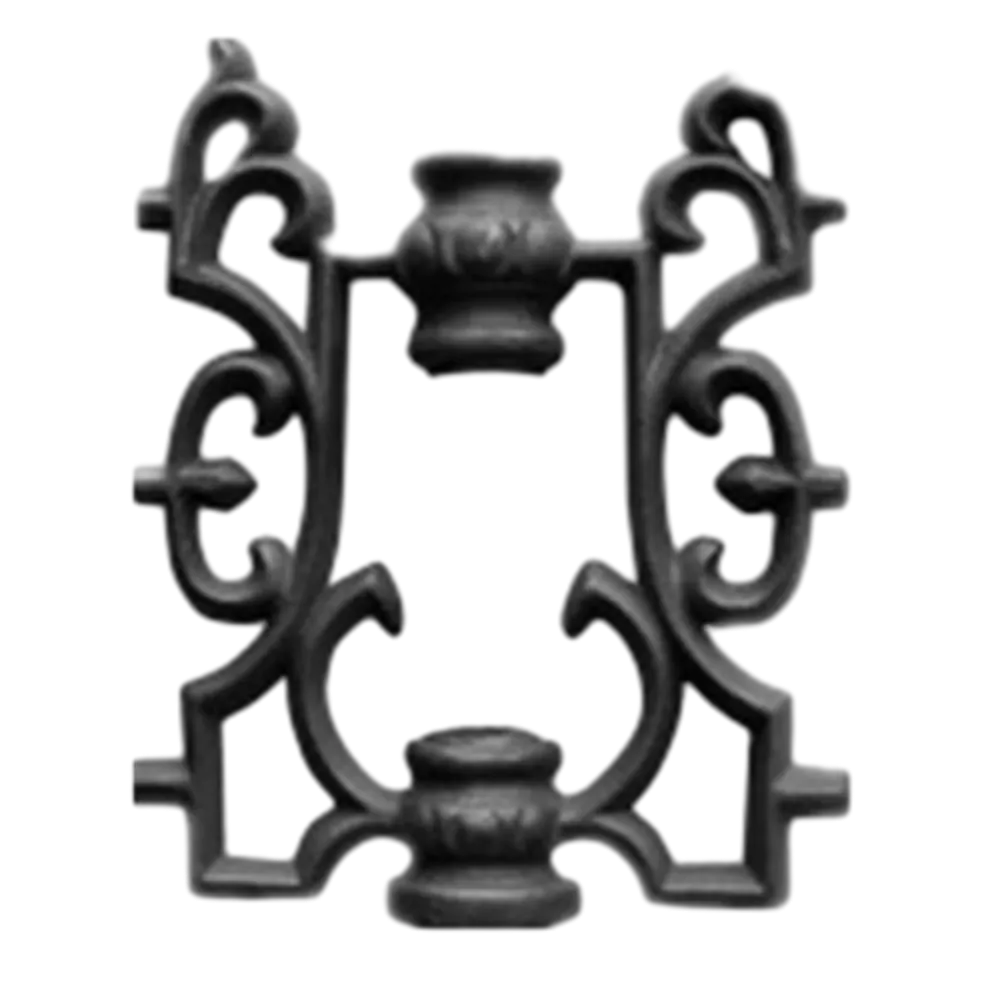decorative iron castings
Decorative Iron Castings A Fusion of Art and Functionality
Iron has been utilized for centuries in various forms, from tools and structures to intricate decorations. Among these, decorative iron castings stand out as a unique blend of artistry and practicality, transforming everyday items into pieces of art that elevate both aesthetic appeal and functionality. This article delves into the significance, techniques, and applications of decorative iron castings.
The Artistry of Iron Castings
Decorative iron castings involve pouring molten iron into a mold to create intricate designs and patterns. The process allows for a level of detail that is often unattainable with other materials. From elaborate gates and railings to decorative furniture and garden ornaments, these castings can turn simple objects into remarkable statements of craftsmanship and style.
The beauty of decorative iron castings lies not only in their visual appeal but also in their adaptability. Artisans can create a wide range of designs, from classic motifs like scrolls and floral patterns to contemporary geometric shapes. The versatility of iron allows it to seamlessly fit into various architectural styles, enriching both traditional and modern environments.
Techniques in Decorative Iron Casting
The crafting of decorative iron pieces typically involves several key techniques. The most common method is sand casting, where sand is used to create molds that form the desired shape when filled with molten iron. This process allows for intricate detailing and the production of multiple pieces from a single mold.
Another technique is lost-wax casting, which provides even greater precision and detail. In this method, a wax model is coated in a ceramic shell. Once the shell is heated, the wax melts away, leaving a hollow space into which molten iron is poured. This technique is particularly favored for creating unique, artistic pieces that demand high levels of detail.
decorative iron castings

After casting, the pieces often undergo finishing processes such as grinding, polishing, and painting. These steps not only enhance the appearance but also protect the iron from corrosion, ensuring longevity. A variety of finishes can be applied, from classic matte to glossy, and even textured coatings that contribute to the overall aesthetic.
Applications of Decorative Iron Castings
The applications of decorative iron castings are vast and varied. In architectural design, these castings are commonly used in gates, fences, railings, and balconies, adding both security and beauty to homes and commercial properties. The intricate designs can serve as focal points that enhance the overall character of a building.
In interior design, decorative iron elements can be found in furniture, light fixtures, and even artwork. Iron dining tables with ornate legs or stylish chandeliers made from cast iron can serve as stunning centerpieces in a home. Additionally, decorative iron is popular in the creation of kitchenware, such as cast iron skillets, which are not only functional but also add a rustic charm to culinary spaces.
In gardens and outdoor settings, decorative iron castings are frequently used in planters, trellises, and garden benches, providing both practicality and an enchanting touch to outdoor design. The durability of iron makes it an excellent choice for outdoor decor, as it can withstand adverse weather conditions while maintaining its beauty over time.
Conclusion
Decorative iron castings represent a harmonious blend of artistry and functionality. With techniques that allow for exquisite detail and a wide array of applications, these castings play a significant role in enhancing both interior and exterior designs. The timeless appeal of decorative iron ensures that it remains a popular choice for those seeking to infuse elegance and character into their spaces. As we continue to appreciate the craftsmanship behind decorative iron castings, they will undoubtedly remain a cherished element in design for generations to come.
-
Wrought Iron Components: Timeless Elegance and Structural StrengthNewsJul.28,2025
-
Window Hardware Essentials: Rollers, Handles, and Locking SolutionsNewsJul.28,2025
-
Small Agricultural Processing Machines: Corn Threshers, Cassava Chippers, Grain Peelers & Chaff CuttersNewsJul.28,2025
-
Sliding Rollers: Smooth, Silent, and Built to LastNewsJul.28,2025
-
Cast Iron Stoves: Timeless Heating with Modern EfficiencyNewsJul.28,2025
-
Cast Iron Pipe and Fitting: Durable, Fire-Resistant Solutions for Plumbing and DrainageNewsJul.28,2025
-
 Wrought Iron Components: Timeless Elegance and Structural StrengthJul-28-2025Wrought Iron Components: Timeless Elegance and Structural Strength
Wrought Iron Components: Timeless Elegance and Structural StrengthJul-28-2025Wrought Iron Components: Timeless Elegance and Structural Strength -
 Window Hardware Essentials: Rollers, Handles, and Locking SolutionsJul-28-2025Window Hardware Essentials: Rollers, Handles, and Locking Solutions
Window Hardware Essentials: Rollers, Handles, and Locking SolutionsJul-28-2025Window Hardware Essentials: Rollers, Handles, and Locking Solutions -
 Small Agricultural Processing Machines: Corn Threshers, Cassava Chippers, Grain Peelers & Chaff CuttersJul-28-2025Small Agricultural Processing Machines: Corn Threshers, Cassava Chippers, Grain Peelers & Chaff Cutters
Small Agricultural Processing Machines: Corn Threshers, Cassava Chippers, Grain Peelers & Chaff CuttersJul-28-2025Small Agricultural Processing Machines: Corn Threshers, Cassava Chippers, Grain Peelers & Chaff Cutters












